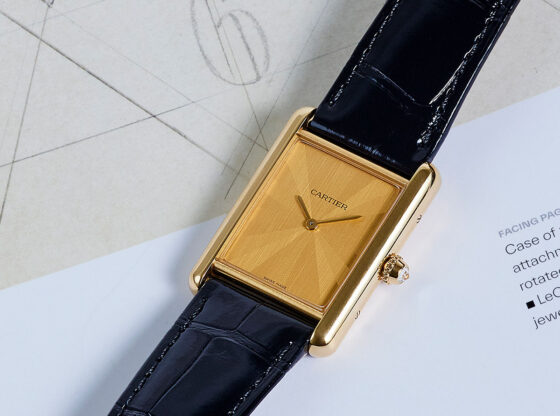![]()
Most people know what the WHO stands for, but some things still need to be spelled out
It’s a pet bugbear of mine … writers lobbing acronyms and initialisms into text right, left and centre and expecting everyone to know what they mean.
Or do they? Maybe there is some seditious snobbery and one upmanship at work here – I know what this stands for, do you?
Before I attempt to expand on this, perhaps I should make clear what I’m on about. An acronym is an abbreviation formed from the initial letters of other words and pronounced as a word (e.g. Nato – North Atlantic Treaty Organisation, or Nasa – National Aeronautics and Space Administration); while initialism is an abbreviation consisting of initial letters pronounced separately (e.g. WHO ¬– World Health Organisation, or BBC – British Broadcasting Company).
The WHO has been appearing a lot in the media lately and, sadly, I am not referring to a rock band formed in London in 1964 (Talkin Bout my Generation). The WHO’s role in attempting to lead the fight against the coronavirus pandemic has brought the organisation to everyone’s attention.
I intend no insult to anyone’s intelligence when I say that in a quiz consisting of acronyms and initialisms, I would expect most people to know what the short-forms refer to, but not everyone would be able to fully spell them out.
An example? Thailand is an Asean country. But, would you be stumped to say what Asean stands for? By the by, I often wonder was Asean stands for and the answer frequently comes back … not a lot (what a cynic)! It is the short-form for Association of Southeast Asian Nations. Bit of a mouthful, admittedly.
Just for clarity, I am not against the use of these short-forms. In fact, I am very much in favour, provided the full form is spelled out at first mention so as to avoid any confusion.
And confusion can easily arise. For example, many years back the initialism STD was a short-form for subscriber trunk dialling, the method people used to dial each other on the phone without the assistance of an operator. Nowadays, it has a more unpleasant connotation with its link to sexually transmitted diseases. Apologies if I am putting you off your cornflakes.
For my UK-based work it is part of my role to spell out acronyms or initialisms if it is unclear what they refer to. Unclear to who? you might ask. Well, me is often the answer. For, I hope, obvious reasons, I never spell out BBC in text. I just don’t think it is necessary. There was a time I would have spelled out WHO, but I’m not convinced that’s required any more.
Often, it’s the context that’s the giveaway. Take the WWF, for example. Go back a couple of decades and there was confusion about its meaning. Was it the World Wildlife Fund or the World Wrestling Federation? In a paragraph about The Rock, you would expect WWF to be of the wrestling variety or one about pandas to refer to wildlife. Context! The confusion was cleared up in 2002 when the WWF became the WWE (World Wrestling Entertainment). But that was only after it lost a lawsuit initiated by the World Wildlife Fund over the WWF trademark. A sensible outcome.
Some acronyms might surprise you. Odeon is a name synonymous with cinemas in the UK. But it is actually short for Oscar Deutsch Entertains Our Nation. That’s one to lob in at your next dinner party. Deutsch was a Birmingham-born entrepreneur.
Other short-forms just have you saying: I’m glad we don’t have to spell it out. An example would be the Fiat car company. Fiat is short for Fabbrica Italiana Automobili Torino. Try saying that after a couple of pints.
If someone were to talk about your DNA I’m sure most would understand. But what is DNA short for? Why deoxyribonucleic acid, of course. Who can say it, let alone spell it? DNA is said to have been discovered back in the 1860s. But its application in relation to criminal investigations is much more recent. The first UK man convicted of murder based on DNA evidence was Colin Pitchfork in 1988 for the murder of two girls in Leicestershire. Late last year he was released from jail, but was recalled soon after for allegedly approaching young women.
Some organisations play fast and loose with their short-forms by adding in other letters so it can be said as a word and not an initialism. Take Camra as an example. It’s the Campaign for Real Ale. Taken literally, it ought to be the CFRA or CRA. But, by taking the first three letters of Campaign the result is more memorable. In a similar vein is Ofcom, the Office of Communications, which is the regulatory body relating to broadcasting in the UK. OOC doesn’t have the same ring to it.
Short-forms have run riot since the advent of social media. At one time I thought lol meant Lord, oh Lord but have since discovered that it means laughing out loud. Awkward if not use correctly. In researching this article, I came across several more short-forms I was unfamiliar with such as MTFBWY (may the Force be with you); SMH (shaking my head); ICYMI (in case you missed it); FTFY (fixed that for you). The list goes on.
Short-forms work provided everyone is on the same page. I will leave you with a personal favourite – Kiss – keep it simple, stupid. So, Kisses all round!

Dave Buckley is a career journalist. “I once went painting girders for a week and discovered I didn’t like heights,” he says. “Apart from that, it has always been journalism for me in one form or another.” Past publications worked for include the South-East London Mercury*, Kent Messenger, Daily Express, Today*, News of the World* and Hong Kong Star*. All those marked with an asterisk no longer exist (trend emerging?). He owned and edited a Thailand-based property magazine before returning to England and currently works as a production editor for an East Midlands-based publishing group.












